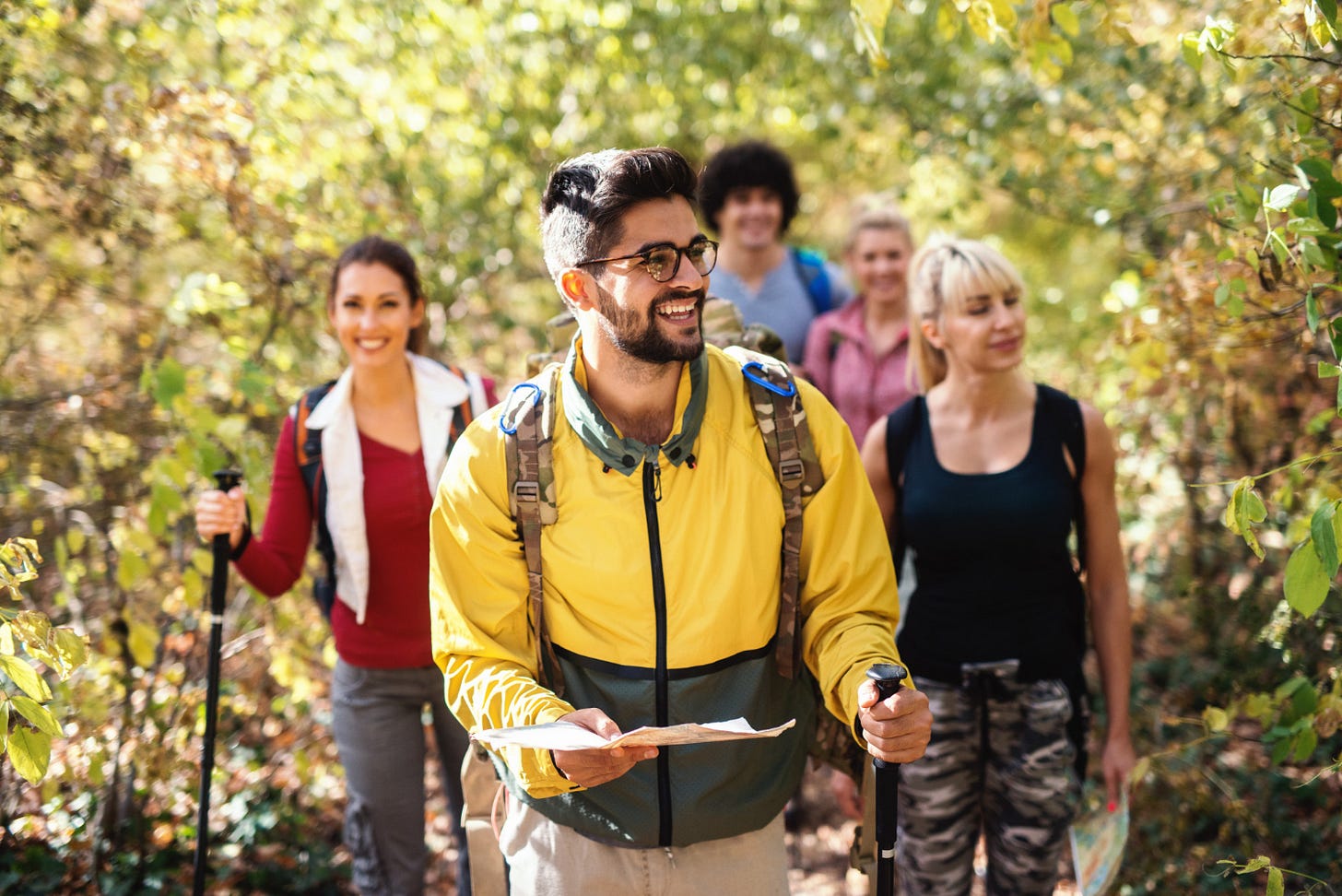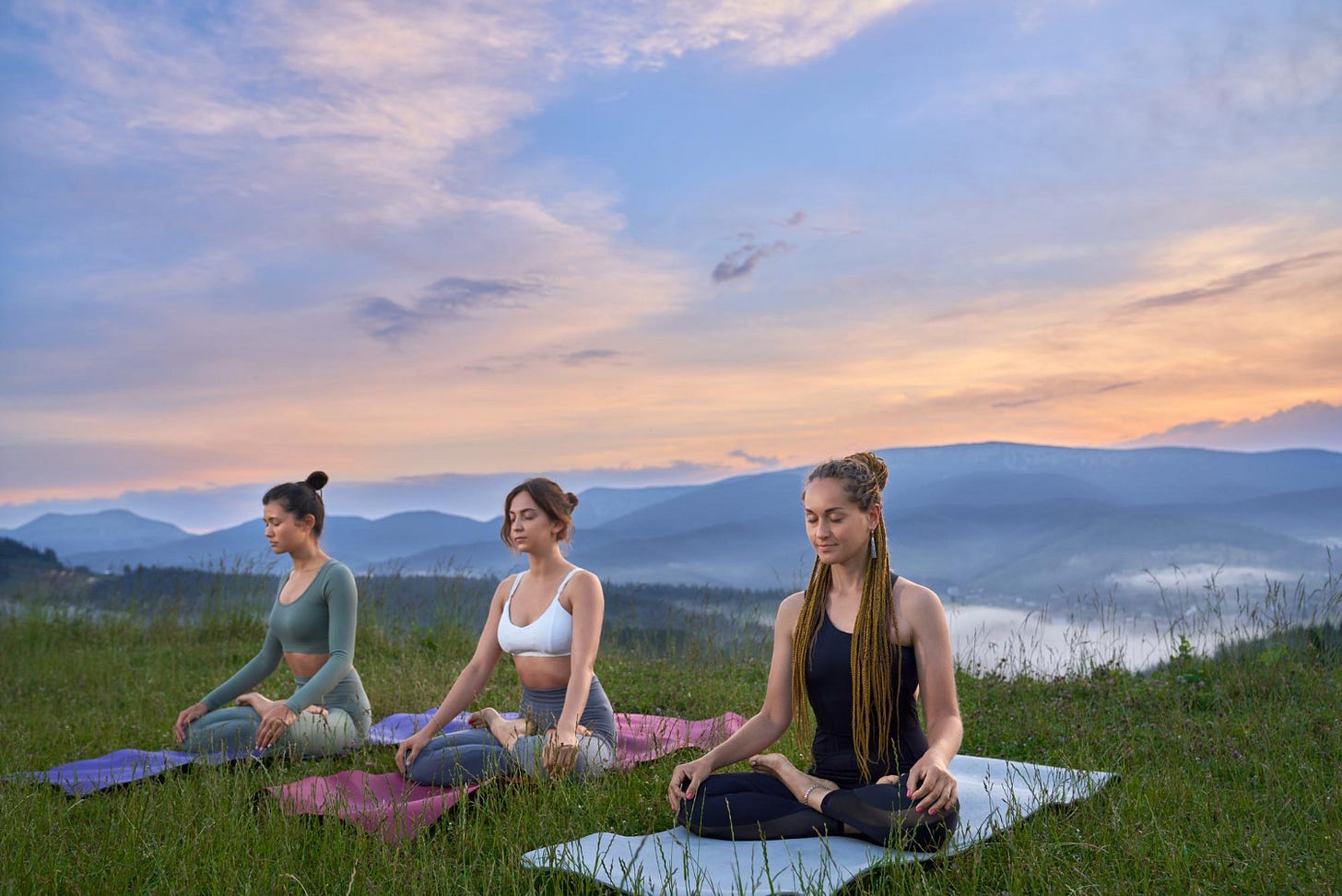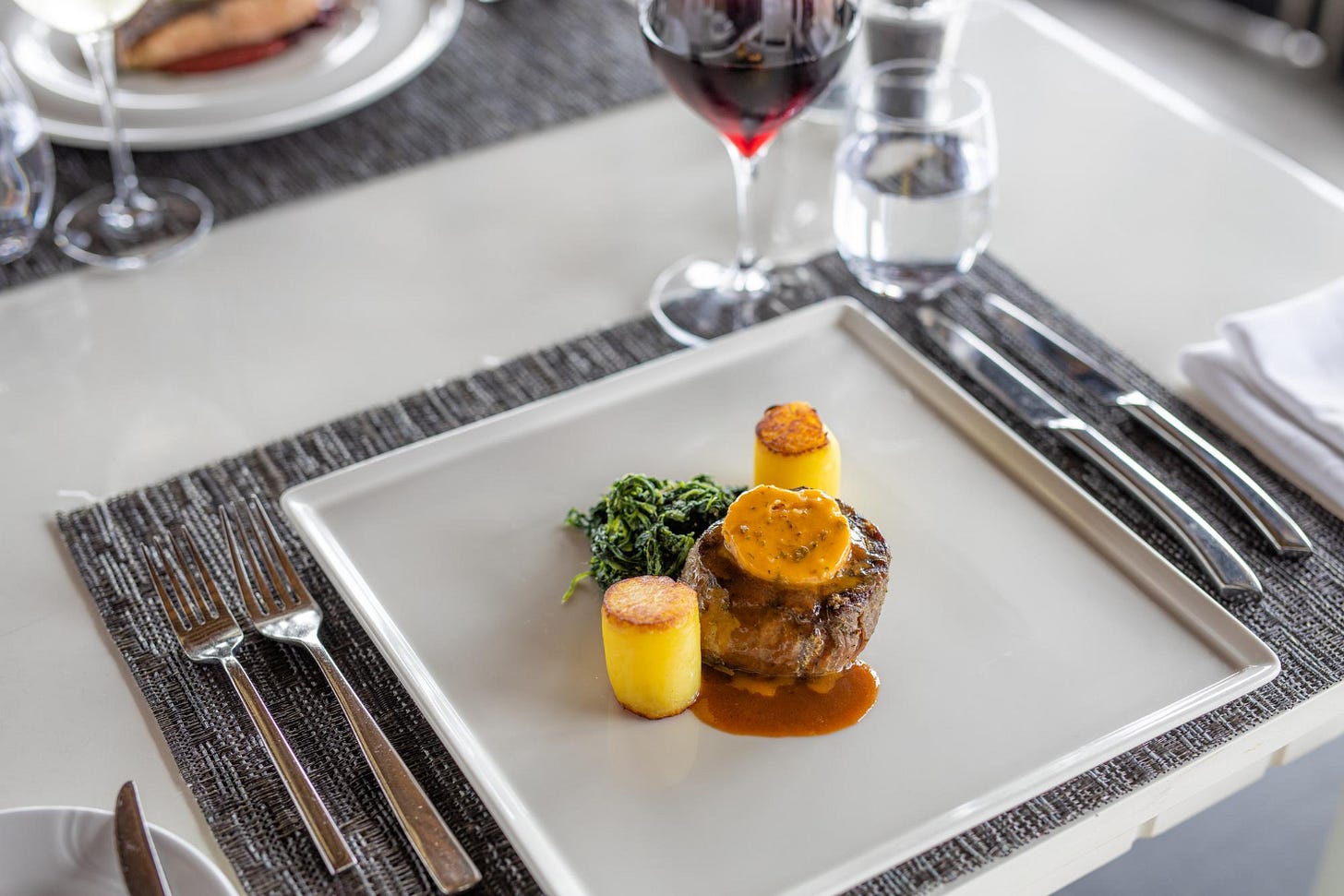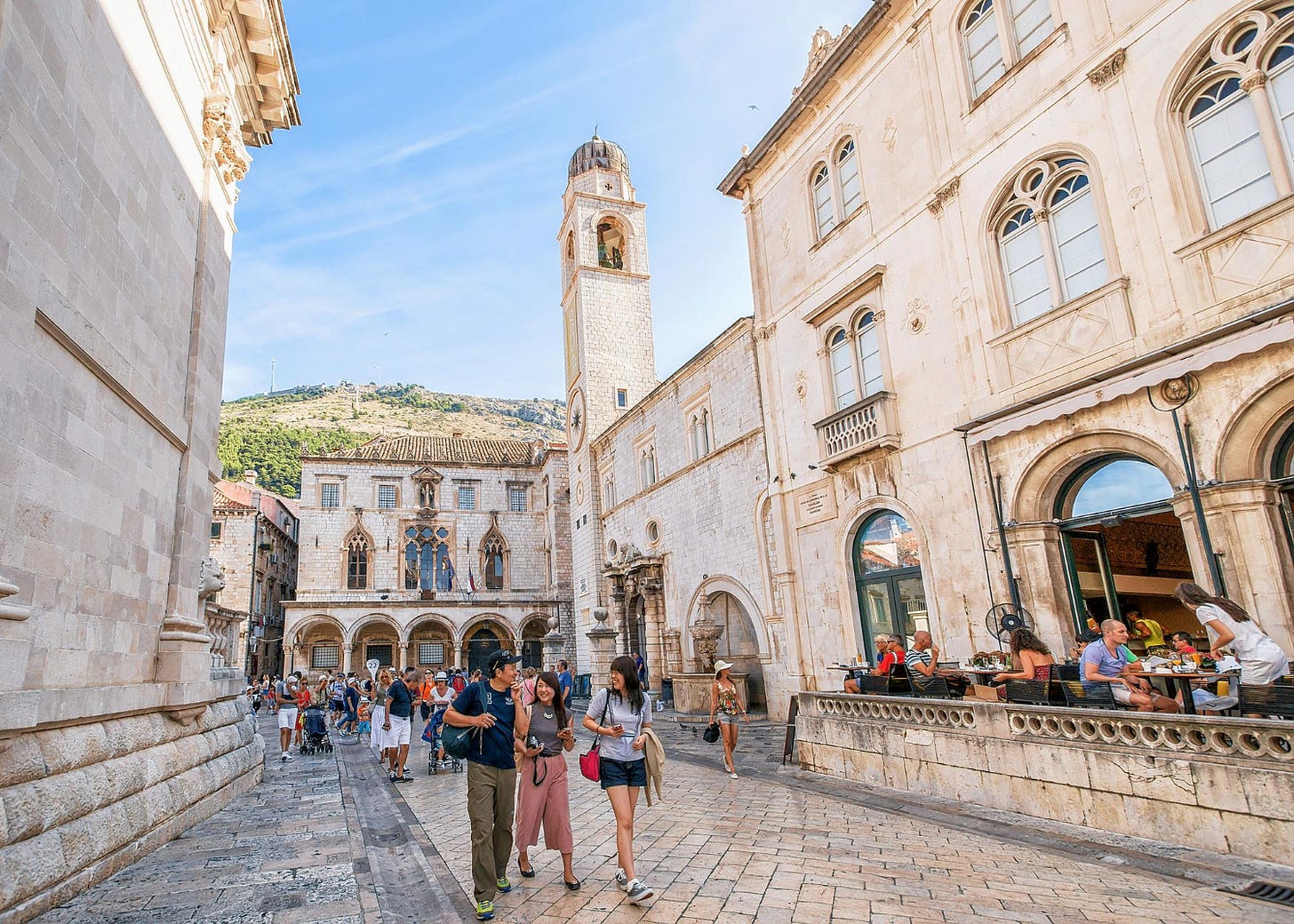Everything You Need To Know To Know About The Experiential Traveller
Guests want more from their hotel stays and this focus on experience is changing the industry
Experiential travel is on the rise and the hospitality industry is changing to cater to this growing trend.
The focus on experience has become a deciding factor for many guests when choosing their accommodations, and age and demographics greatly influence the type of experience they seek.
Crafting unique and memorable experiences has become an opportunity for hotels to showcase their brand and create lasting memories with their guests.
In this article, we will explore the benefits and challenges of immersive travel experiences and how hotels can optimise their marketing and advertising strategies to attract experiential travelers.
Adapting to the Trend of Experiential Travel: How Hotels Can Stand Out
What has once been considered niche, adventure tourism is now mainstream. Today's travelers seek immersive experiences that engage all five senses and create lasting memories.
Hotels must now step up their game to attract guests. Comfortable rooms, soft pillows, and exceptional services are still important, but more emphasis is placed on what else the hotel has to offer. Hotels that think outside the box and showcase their environment or local community can appeal to those actively seeking something different.
To address the top complaints of travelers - lack of activities, unmet expectations, and unwelcoming locations - hotels are partnering with local businesses, creating new activities, and offering concierge assistance.
For example, Lemon Locke in London offers collaborations with local artists, exhibition spaces, yoga classes, and unique dining experiences. The Lanesborough, also in London, has a current events calendar and tourist guide.
The trend of experiential travel is growing rapidly, aided by technology and greater ease of booking vacations. One of the biggest competitors to hotels is Airbnb, which now offers over 15,000 experience listings. Hotels can boost their bookings and customer satisfaction by offering unique and memorable experiences that create lasting memories.
Some of the different categories of events that Airbnb offer include:
Arts & Crafts Classes
Photography Classes
Fishing Experiences
Sports Classes
Nature Walks & Guided Hikes
Historical Walks & Tours
Wellness Classes
Source: Airbnb
Hoteliers need to understand that this isn’t a passing phase, that experiential travel is a long-lasting trend that’s likely here to stay.
How a business implements this with regard to local and global tourists will make a significant difference in obtaining bookings or not.
So, Who Is the Experiential Traveller and What Do They Want?
The Experiential Traveller is someone who seeks to gain more from their holiday and wants to have an authentic experience. This could be anything from learning new skills to visiting culturally rich places to participating in a location-specific event. Regardless of why they started traveling, these travellers book their destinations with the experience in mind.
Age and demographics vary depending on the type of experience being offered. Younger travellers may prefer challenging experiences and engage with trendy subjects, while older demographics may prefer historical or cultural value.
Social media and technology have made it easier for potential guests to discover, research, book, visit and share about a greater number of locations. As such, Experiential Marketing looks at the emotional and visual impact of a location and promotes it to visitors.
For example, if you own a hotel in a scenic location like Devon, you could offer walking tours, partner with local businesses that offer nature events, or set up a geo-caching route for guests. Similarly, if your hotel has an interesting history, you could offer tours of the area or create mini-tours that educate guests on the hotel's story.
Offering unique experiences and using storytelling techniques to promote a venue can encourage potential customers to emotionally connect and feel that they're getting value for money.
As the trend of experiential travel grows, hotels must adapt to stand out. By offering unique and memorable experiences, hotels can boost bookings and customer satisfaction, creating lasting memories that guests will cherish.
Some of the main reasons for experiential travel are:
To experience new cultures or areas of historic significance
To challenge themselves
To benefit from well-being and wellness-related destinations
To attend specific location-related events
To create priceless memories
To experience ‘Once in a Lifetime’ situations personally
To merge business and leisure trips together (Bleisure)
To learn a new skill or craft, such as cooking, pottery or painting
To explore nature and wildlife, such as going on a safari or a jungle trek
To participate in a volunteering program and make a positive impact on the local community
To embark on a spiritual journey, such as visiting sacred sites or attending a meditation retreat.
Hotels can capitalise on this trend by offering something unique to their location or themselves to create lasting memories for guests and stand out in the competitive market.
Hotels can offer unique experiences that immerse travelers, such as farm-to-table dining experiences, wine tastings, cooking classes, or outdoor adventure activities.
By catering to the needs of the experiential traveler, hotels can create a loyal customer base and generate positive word-of-mouth reviews on social media and other online platforms.
Why Are Experiences Important? How Should You Craft Them?
For customers, experiences create lasting memories and enrich their sense of self. For businesses, experiences offer the opportunity to showcase their brand and gain more customers through word-of-mouth referrals and positive reviews.
As a hotel, it is important to consider your venue size, budget, location, and unique selling points when crafting experiences for your customers.
By understanding your audience, you can tailor your experiences to their wants and needs, and create packages that resonate with them. Your reporting tools can help you gain insights into your customers so that you can create comprehensive buyer personas.
When coming up with ideas for experiences, it is essential to ask yourself a few questions.
Is the experience something your customers actually want?
What is the demand for this type of experience?
Is anyone else offering something similar locally?
Are you creating a general or an exclusive experience? Is the experience time-limited?
For instance, a haunted room in your property could be turned into a ghost tour that could be marketed all year round. However, in the run-up to Halloween, you could leverage the interest and offer a special package.
Your ideas should align with your customer's preferences, your brand, and the season you're offering them.
By creating memorable experiences, hotels can differentiate themselves from their competitors and stay ahead in the game.
Experience Ideas for Your Hotel
Enhancing Your Hotel Experience with Unique Food and Beverage Offerings
Travelers today are increasingly seeking unique and memorable experiences, and one aspect that can make or break their stay is the food and beverage offerings. For hotels with on-site restaurants or bars, there is a great opportunity to create an experience that will delight guests and keep them coming back.
To begin with, it's important to take a look at your current offerings and see if there are ways to elevate them. Consider sourcing ingredients from local producers and partnering with artisanal F&B businesses to add new and exciting dishes to your menu. By taking a fully local approach, you can create a selling point that is unique to your area and showcases your commitment to sustainability and community.
To promote your offerings, using social media is key. Share photos and videos of your dishes, along with detailed descriptions that highlight the local ingredients and unique flavour profiles. Engage with guests on social media by asking for their feedback and recommendations for future menu items.
By focusing on the food and beverage offerings, hotels can create a truly memorable experience that will leave guests with a positive impression and encourage them to return. Plus, by sharing these unique offerings on social media, hotels can reach a wider audience and attract new guests who are drawn to authentic and locally-sourced cuisine.
Elevate Your Hotel Experience with Unique Events
Organising events is a great way to enhance your guests' experience and build your brand reputation.
However, hosting an event requires careful consideration of your budget, location, and customer needs. You can capitalise on your staff's skills or outsource to external parties to create memorable experiences.
The success of your event depends on effective marketing that highlights the benefits of attending. Collaborating with local businesses and event organisers can also increase interest in the area and provide opportunities for special access tickets or exclusive showings.
By working together with event organisers and ticket platforms, you can create a win-win situation and increase your bookings.
Embracing Local Culture
Transform your hotel into an experiential location by embracing the history and culture surrounding it.
You can differentiate your hotel by describing the area and what your guests would be able to do, theming rooms, or holding events in that particular style.
Understanding your local culture and the history of your home gives you authority and a sense of community. The more you know and can explain, the more established and trustworthy your brand becomes.
Incorporating local elements into your digital marketing strategy is also essential. Use local keywords and phrases to optimise your website and social media. Share interesting facts and stories about the area to engage with your audience. Customers are more likely to choose a hotel that showcases its local culture and history.
How to Effectively Market Your Experiential Offer
Marketing your experiential package can make all the difference between success and failure in the hospitality industry. To ensure success, it's essential to carefully evaluate your offering, define your expectations, and determine a budget that will help you reach your goals.
Putting together a marketing strategy for your experiential offer is vital. Using emotional storytelling is a good way to get customers engaged.
Create posts that evoke feelings and emotions, and make people want to get involved. By telling a story, you're also able to break up your posting schedule (like chapters) to encourage people to keep returning to learn more.
Your digital PR is important. You need to make an impact and get people talking. By creating press releases or approaching other websites with your material, you should aim to have others sharing the news of your event and encouraging new guests.
Take your time to network both online and offline. The more people you have involved in promoting your venue or sharing positive sentiment about it, the better your reputation will be, and the more likely you are to get bookings.
By incorporating local elements into digital marketing strategies, hotels can establish a trustworthy brand and attract more customers seeking ethical and responsible hospitality. Collaborating with local businesses and event organisers to create unique experiences for guests is also essential.
Take-Away
Experiential travel is a growing trend in the tourism industry that offers unique and immersive experiences to travelers.
While creating compelling and memorable experiences can be challenging, the benefits of experiential travel are significant.
By incorporating local elements into marketing strategies, collaborating with local businesses, and using emotional storytelling techniques, hospitality businesses can establish a trustworthy brand and attract more customers.
As the tourism industry continues to evolve, businesses that embrace experiential travel and create memorable experiences for their customers will be well-positioned for success in the future.
Here's to Your Success 🥂
Subscribe now to stay up-to-date on the latest trends, tips, and strategies for experiential travel.








